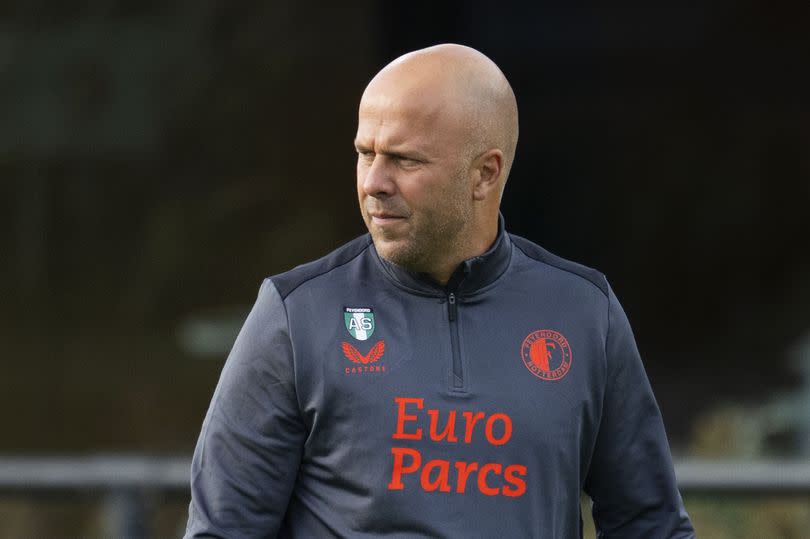Liverpool homegrown quota explained amid Adrian contract offer and summer transfers

Liverpool has offered Adrian a new contract and that means the usual chatter among some parts of the Reds fanbase about the homegrown quota ahead of the summer transfer window. But what does that actually mean?
Like all other clubs, Liverpool is subject to the Premier League rules in this regard, and must comply with what is commonly referred to as the ‘quota’. In short, there are rules that tell clubs how many non-homegrown players they are allowed to register.
Last summer, Jordan Henderson and James Milner both departed but Liverpool was still able to balance things. But 12 months on, is Liverpool in any trouble? Could it affect transfer plans? To answer that, it’s necessary to take a look at exactly how the rule works.
READ MORE: Liverpool confirms 10 players set to leave in first Arne Slot summer as new contract offer made
READ MORE: Liverpool star ruled out of Euro 2024 amid fresh setback as Diogo Jota makes injury return
First and foremost, the homegrown rule is not about English players. It is about players trained in England for at least three years before their 21st birthday — that’s why Caoimhin Kelleher, an Irish national, still qualifies for the so-called quota, having joined the Liverpool academy set-up as a teenager.
But what is the ‘quota’? In actual fact, it’s not really a quota at all. It’s more accurate to describe the Premier League squad rules as a limit on ‘non-homegrown’ players, with no club allowed to name more than 17 of those.
The maximum squad size in the Premier League is 25, which has led to the common belief that teams must include eight homegrown players. But in fact, there is no obligation to name any homegrown players — although there is obviously a huge incentive to do so, with eight ‘extra’ senior squad slots effectively up for grabs.
The word ‘senior’ is key, as well, because it’s also worth noting that any player under the age of 21 does not need to be registered in the squad at all. For the coming season, the line will be drawn at January 1, 2003: anyone born on or after that date will be allowed to play in the Premier League without taking up a squad slot.
That’s significant for Liverpool, who has a healthy contingent of young players in the senior set-up. Regardless of its homegrown situation, it can include the likes of Harvey Elliott and Stefan Bajčetić for ‘free’, along with potential squad players like Tyler Morton, Kaide Gordon, Ben Doak and Conor Bradley.
The season before last, Liverpool was already ‘short’ one player. It named an initial squad of 23 in the summer, leaving one homegrown and one non-homegrown slot open, filling the latter with Cody Gakpo in January. But the lack of another senior homegrown presence meant Klopp could not utilize a completely full squad.
Being one player short is not too much of a worry, especially when there are youth players ready to plug any gaps. But a significant shortfall might complicate things for Liverpool.
Last year, Wataru Endo took Fabinho's place and Alexis Mac Allister and Dominik Szoboszlai both joined the roster, but Naby Keita, Roberto Firmino and Arthur Melo all departed. Ryan Gravenberch was young enough not to count because of his age, though he now does having turned 22. This summer, Thiago Alcantara and Joel Matip are both set to leave so Liverpool has essentially gained one spot in net terms.
Liverpool's non-homegrown players are, as it stands: Alisson Becker, Adrian (if he signs the new deal that has been offered to him), Virgil van Dijk, Andy Robertson, Kostas Tsimikas, Ibrahima Konate, Wataru Endo, Alexis Mac Allister, Dominik Szoboszlai, Ryan Gravenberch, Mohamed Salah, Diogo Jota, Luis Diaz, Cody Gakpo and Darwin Nunez. That totals 15 players, with there being another two slots available for non-homegrown signings.
So the overall takeaway is that the homegrown need is not quite as pressing as it first may seem. That, of course, partly explains why Liverpool is happy to offer Adrian a new deal. It will always be an extra tick in a box for the Reds' recruitment team, but the Premier League rules will not restrict transfer business that much.
An original version of this story was first published on 7 July 2024. It has since been updated.

 Yahoo Sport
Yahoo Sport 






































